
Roulette: A Comprehensive Guide to the Game, Variations, and Strategies
Roulette is one of the most iconic and thrilling games in the world of gambling. Whether you’re a seasoned player or just curious about the game, this comprehensive guide will provide you with the latest information, insider insights, and a fresh perspective on roulette. Dive deep into the history, strategies, online variations, and cultural significance of this captivating casino staple.
Understanding the Basics of Roulette
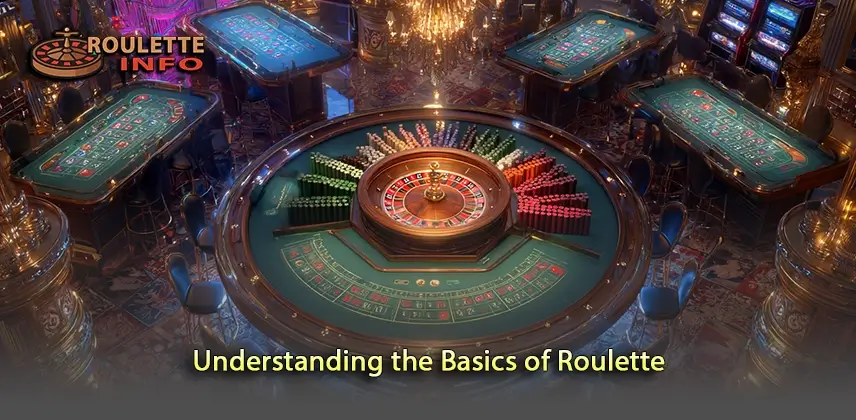
Roulette isn’t just a game of chance; it’s a sophisticated blend of mathematics, psychology, and tradition. To truly appreciate its nuances, it’s essential to start with a foundation that covers its origins, mechanics, and the terms every player must know.
The allure of roulette lies in its simplicity paired with the complexity of betting and odds. The spinning wheel, the bouncing ball, and the anticipation—as the game progresses, players feel a rush that’s hard to match. However, beneath this excitement, the house edge quietly ensures the casino’s long-term advantage, a critical concept for every player to understand.
History and Origins of Roulette
The historical trail of roulette winds through 18th century France, where the game first surfaced in gambling circles. While its exact origins are debated, many credit Blaise Pascal’s mathematical explorations with inadvertently creating the design of the roulette wheel. The term ‘roulette’ itself means “little wheel” in French, reflecting the game’s simplicity and elegance.
As the game evolved, it spread through Europe, eventually landing in casinos in Monte Carlo and beyond. Early roulette wheels had notable distinctions, such as the inclusion or exclusion of the double zero, which later influenced different game variants like the American and European styles. Understanding the roots of roulette offers players a deeper appreciation of its cultural and historical significance, bridging centuries-old techniques with modern gameplay.
The Roulette Wheel Layout and Numbering System
The roulette wheel is a masterpiece of design and engineering. The wheel is divided into numbered pockets ranging from 0 to 36, with the color red or black alternating in most pockets. European roulette wheels feature a single zero (0), while American wheels add a double zero (00), altering the odds and house advantage.
The numbering sequence on the wheel is deliberately arranged to create balance between high and low, odd and even numbers, as well as red and black colors. This balance ensures unpredictability for players, making the game both strategic and thrilling. The wheel’s layout is crucial to understanding betting strategies and potential payout odds associated with roulette.
Different Types of Roulette: European, American, and French
Roulette has evolved into several major types, each introducing its own twist on gameplay. The most common types you’ll encounter are European, American, and French roulette.
European roulette, with its 37 pockets (numbers 0 through 36), offers players a lower house edge compared to American roulette, which has an extra double zero slot, increasing the pockets to 38 and raising the house advantage. French roulette, similar to European, introduces unique rules like “La Partage” or “En Prison” that affect how bets on zero are treated, providing players with slightly improved odds. Each variation appeals to different types of gamblers, blending tradition with modern preferences.
Key Roulette Terminology: Bets, Payouts, Wheels, and More
To navigate the world of casino roulette confidently, mastering essential terminology is vital. Bets can be broadly divided into inside bets (placed on specific numbers or small groups) and outside bets (covering larger sections like colors or evens/odds).
Payouts vary depending on the type of bet: a straight-up number might pay 35:1, while red or black pays even money. Understanding terms like “split,” “corner,” and “street” can help players place their chips more strategically. Additionally, terms such as “house edge,” “wheel numbers,” and “chip denomination” are integral to grasping the full mechanics of roulette and its betting options.
House Edge Explained: Why the Casino Always Wins (Eventually)
At the heart of roulette is the house edge, the built-in statistical advantage the casino holds over players. This edge exists because the payouts are slightly less than true odds. For instance, in European roulette, the zero pocket ensures the casino has about a 2.7% advantage, while in American roulette, the addition of the double zero increases that advantage to about 5.26%.
While players might experience hot streaks, the law of large numbers dictates the casino ultimately prevails in the long run. Comprehending this concept is crucial for anyone engaging with roulette, as it sets realistic expectations for winnings and losses, encouraging responsible and strategic play.
Exploring Different Roulette Variations
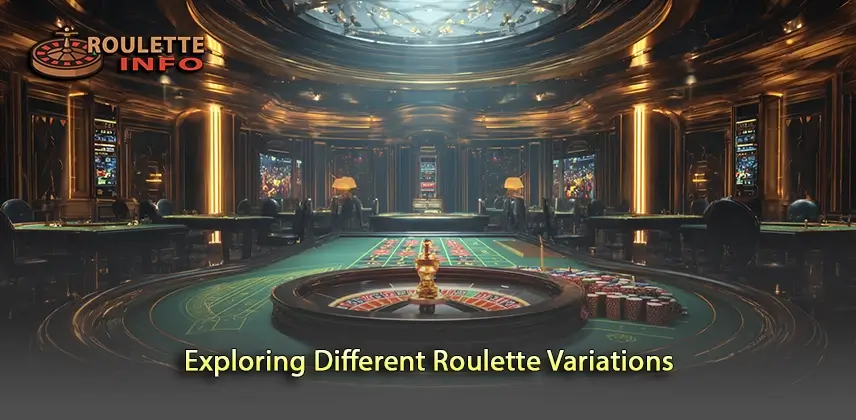
The world of roulette has expanded far beyond traditional casino floors. Today, players can enjoy multiple variations that blend convenience with cutting-edge technology and exciting new rules. Whether you prefer the comfort of your home or the buzz of a live dealer, roulette has something to offer.
As the game continues to evolve, innovations like lightning roulette and roulette royale have injected new energy into the game, attracting a diverse range of players. Understanding these variations allows you to explore new ways to enjoy roulette and find the style that suits your preferences and playing habits.
Online Roulette: Convenience and Accessibility
One of the most transformative developments in gambling is the rise of online roulette. This digital adaptation allows players worldwide to access the game anytime, anywhere, breaking geographical and time constraints.
Online platforms offer different versions of the roulette game, from traditional layouts to themed versions like luna roulette or red door roulette. Beyond convenience, they often provide tutorials, roulette demo modes for beginners, and the opportunity for real money play without traveling to casinos. Online roulette has revolutionized the gambling landscape, presenting a more inclusive and accessible gambling culture.
Live Roulette: The Authentic Casino Experience
While online roulette offers convenience, many players crave the immersive atmosphere of traditional casino settings. That’s where live roulette games come in, pairing real-time streaming with professional dealers to replicate the authentic casino feel right on your screen.
Live roulette tables broadcast high-definition video from studio settings or actual casinos, complete with chat features allowing player interaction. This feature parallels physical casino games but adds the comfort of online play, catering to players who seek ambiance, socialization, and direct control over their betting experience without stepping foot outside.
Lightning Roulette: Enhanced Payouts and Electrifying Gameplay
A particularly innovative and popular variant in recent years is lightning roulette. This game blends traditional roulette mechanics with exciting multipliers that can dramatically boost payouts.
Lightning roulette features “lucky numbers” randomly assigned multipliers of up to 500x, creating suspense and potential for significant wins on straight-up bets. This electrifying twist appeals to both roulette purists and thrill-seekers, offering a dynamic alternative that’s reshaped perceptions of what roulette can be. The fast pace and dazzling visual effects keep players engaged and add an extra strategic layer to betting decisions.
Roulette Royale: Progressive Jackpot Thrills
For players chasing big wins, roulette royale offers an exciting proposition by integrating a progressive jackpot into the classic game. With each game, a portion of bets contributes to the jackpot pool, which can be won through specific conditions, often involving consecutive wins on chosen numbers.
This variation gears towards high rollers and those who enjoy the added excitement of jackpot potential alongside normal roulette payouts. Roulette royale challenges players to balance cautious betting with attempts to trigger the jackpot, blending traditional gameplay with modern jackpot allure.
Roulette Demo: Practicing and Perfecting Your Skills
For newcomers and experienced players alike, the roulette demo mode is an invaluable tool. These free versions allow players to practice betting strategies, understand payouts, and get comfortable with game mechanics without risking real money.
Demo modes are particularly helpful in online platforms, where the pace might differ from physical tables, and interface elements require familiarity. Using a roulette demo can build confidence and allow you to experiment with various betting approaches, preparing you for the real-money experience and making the actual stakes feel less daunting.
Delving into Roulette Strategies and Betting Systems

Success in roulette isn’t just about luck—understanding and applying strategies can influence your enjoyment and, to some extent, your outcomes. However, it’s important to maintain realistic expectations about the effectiveness of any betting system.
By dissecting the most popular approaches and discussing their advantages and limitations, players can develop a more nuanced and thoughtful approach. Combining strategy with disciplined bankroll management creates the best environment for both entertainment and mindful gambling.
Inside this section, you’ll find insights into different bet types, timeless systems like Martingale and Fibonacci, and practical advice on risk and money management.
Inside Bets vs. Outside Bets: Understanding the Odds
One of the foundational strategic considerations in roulette online is the distinction between inside and outside bets. Inside bets involve placing chips on specific numbers or small number groups and typically offer higher payouts but lower odds of winning.
Outside bets cover larger sections such as red or black, odd or even, or dozens and columns — these come with greater chances of winning but offer smaller payouts. For instance, betting on black typically pays even money but has nearly a 50/50 chance (excluding the zero pockets). Understanding these bet types helps players tailor their risk tolerance and game style.
Balancing inside and outside bets is often considered an essential part of roulette strategy, where players might combine the thrill of high payouts with steady, lower-risk betting to enhance their overall experience.
Popular Betting Systems: Martingale, Fibonacci, D’Alembert, and More
Over the years, gamblers have devised numerous betting strategies to try to beat casino roulette’s odds. The Martingale system, one of the most famous, involves doubling bets after each loss to recover losses with a single win, though it requires a large bankroll and comes with considerable risk.
The Fibonacci system uses the famous number sequence to determine bet sizes, aiming to manage losses more conservatively. D’Alembert, contrastingly, uses incremental increases and decreases after losses and wins to maintain balance. While these systems add structure and discipline to betting, none can overcome the house edge, and they require discipline to avoid substantial losses.
Evaluating Strategy Effectiveness: Separating Fact from Fiction
Many myths surround roulette strategies, fueled by anecdotal success stories and gambling folklore. It’s crucial to separate hype from reality and recognize that no system guarantees long-term winnings against the house edge.
Evaluating strategies realistically involves understanding the volatility, potential for large losses, and the randomness inherent in roulette outcomes. While certain approaches can make sessions more engaging or help manage bankrolls, attributing supposed “winning formulas” to unbreakable systems is misleading.
A balanced perspective on strategy ensures players gamble responsibly and enjoy the game without unrealistic expectations.
Risk Management: Setting Limits and Sticking to Them
Effective risk management is arguably the most critical aspect of successful and enjoyable roulette play. This involves setting loss limits, win goals, and time constraints before starting a session.
Players should also resist the temptation to chase losses—a common path leading to deeper deficits. Defining these boundaries protects your bankroll and keeps the entertainment factor intact. Both casual and serious players benefit from self-discipline and structured risk controls in maintaining a positive gaming experience.
The Importance of Bankroll Management
Bankroll management complements risk management by dictating how much money a player allocates to gaming sessions and individual bets. Properly managing your bankroll means dividing your funds into manageable units and never risking more than a small percentage on a single bet.
This approach prevents rapid depletion of funds and allows for longer playtime, increasing the enjoyment and potential for learning through experience. Especially important in online play, where betting speeds can be faster, good bankroll management preserves the fun and prevents impulsive decisions.
Navigating the World of Online Roulette Casinos
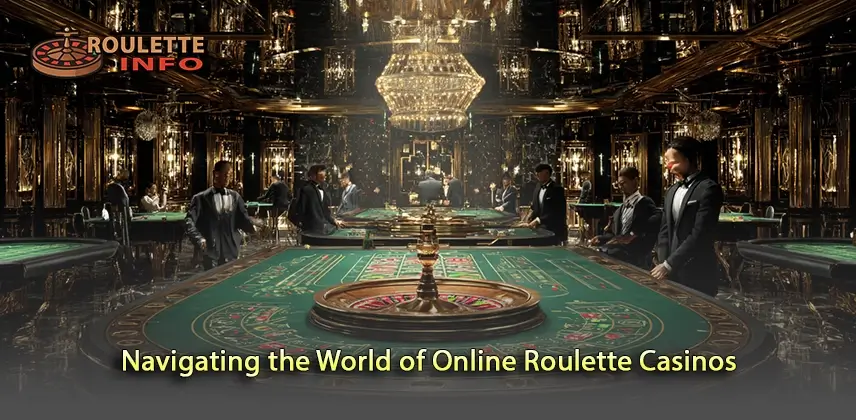
As roulette online becomes the go-to format, understanding how to choose and interact with online casinos is vital. From ensuring fairness to securing your data, every aspect of your digital gaming environment influences your experience and safety.
Selecting the right platform not only enhances your enjoyment but protects your investments, especially when playing casino roulette with real money. This section unpacks the critical factors in picking reputable sites, evaluating bonus offers, and engaging responsibly.
Choosing a Reputable Online Casino: Licensing, Security, and Fairness
The foundation of a trustworthy online roulette casino lies in its licensing and regulation. Casinos licensed by authorities such as the UK Gambling Commission, Malta Gaming Authority, or Curacao eGaming demonstrate adherence to strict standards of fairness and security.
Security features like SSL encryption protect player data during transactions, while independent auditors ensure that games, including roulette online, use certified random number generators (RNGs) for fairness. Players should research and select casinos that emphasize transparency and customer protection to avoid scams or unfair practices.
Evaluating Game Selection and Software Providers
The breadth and quality of game offerings on an online casino site significantly impact your roulette experience. Leading providers such as Evolution Gaming, NetEnt, and Microgaming offer well-designed, reliable versions of roulette variants.
Beyond the quantity of games, quality matters: smooth user interfaces, fast loading times, and mobile compatibility enhance enjoyment. Pay attention to whether the casino offers live dealer games, demo modes, and innovative versions like buckshot roulette or luna roulette, which can add variety and excitement to play sessions.
Understanding Bonus Offers and Wagering Requirements
Many online casinos entice players with attractive bonuses, including welcome offers, deposit matches, and free spins. Bonus money can be a great way to extend playing time, especially for games like roulette that involve steady bet placements.
However, it’s crucial to read the fine print regarding wagering requirements, which dictate how many times you must bet the bonus amount before withdrawing winnings. Bonuses may also have restrictions on specific games or bet types, so understanding these conditions ensures expectations align with reality and prevents frustration.
Payment Options: Deposits and Withdrawals
Convenient and secure payment methods are essential to a hassle-free roulette experience. Reputable casinos support multiple deposit and withdrawal options, including credit/debit cards, e-wallets like PayPal or Skrill, bank transfers, and even cryptocurrencies.
Transaction times, fees, and verification procedures vary and can influence your decision on where to play. Ensuring your chosen casino has fair processing times and transparent policies helps avoid surprises and builds confidence in their services.
Responsible Gambling: Setting Limits and Seeking Help
While roulette online offers entertainment, maintaining control over your gambling behavior is imperative. Most good casinos provide built-in tools allowing players to set deposit limits, session timers, and self-exclusion periods.
If gambling begins to negatively affect your life, seeking help from professional organizations and support groups is vital. Encouraging responsible gambling culture benefits the entire community of players and ensures that roulette remains an enjoyable pastime rather than a harmful compulsion.
Roulette and Pop Culture: From Buckshot Roulette to Celebroulette

Beyond casinos, roulette has penetrated popular culture in diverse and fascinating ways. Variations such as buckshot roulette and red door roulette demonstrate the game’s adaptability to novel settings, while platforms like chatroulette and celebroulette illustrate its presence in social and digital arenas.
Exploring how roulette intersects with culture reveals both playful reinterpretations and the broader social meaning embedded in its mechanics, history, and iconography.
Buckshot Roulette: A High-Stakes Twist on the Classic Game
Buckshot roulette is a daring and intense variation of the classic game, increasing the stakes and tension. While generally not mainstream in formal casino environments, it appeals to thrill-seeking players who want to heighten the adrenaline.
This style often incorporates unique betting rules or adds elements borrowed from shooting sports, creating a hybrid of chance and risk that’s both innovative and controversial. Buckshot roulette illustrates how roulette’s flexible framework can spawn new experiences for niche audiences.
Red Door Roulette: Exploring the Game’s Unique Mechanics
Red door roulette, with a history rooted in underground gambling, features unique mechanical nuances differentiating it from standard roulette tables. Its origin and gameplay nuances contribute to a lore that has piqued the interest of enthusiasts keen on roulette’s diverse forms.
Understanding red door roulette history offers insights into gambling’s cultural evolution and how variations respond to player preferences and contexts. This version highlights small but significant twists that can refresh a traditional game format.
Examining the Cultural Phenomenon and Meaning of “Roulette”
The word roulette meaning extends beyond gambling; it evokes symbolism of fate, chance, and life’s unpredictability. Its depiction in literature, film, and art often relates to the tension between control and randomness.
Roulette’s mystique and evocative imagery help explain its enduring popularity and cultural resonance. It serves as a metaphor for risk-taking, decision-making, and the uncertain nature of outcomes in broader human experience.
Chatroulette and Celebroulette: Random Encounters Online
In the digital realm, chatroulette pioneered random video chatting, connecting strangers globally for ephemeral interactions. Its chaotic, unpredictable nature mirrors the spirit of roulette’s random outcomes in gambling.
Similarly, celebroulette and celebs roulette play on the idea of chance, often involving appearances or content related to celebrities, blending entertainment with the allure of randomness. These platforms underscore roulette’s conceptual influence beyond the gambling floor into modern digital social experimentation.
Debunking Myths and Misconceptions About Roulette
Myths about roulette, from “hot numbers” to “systems that guarantee wins,” persist despite mathematical evidence to the contrary. These misconceptions can skew player behavior and lead to unnecessary losses.
Demystifying these beliefs involves education on game randomness and the house edge, helping players engage more thoughtfully. Recognizing that roulette outcomes are independent events is key to avoiding fallacies and promoting healthy, informed enjoyment.
The Dark Side of Roulette: Russian Roulette and Risky Variations
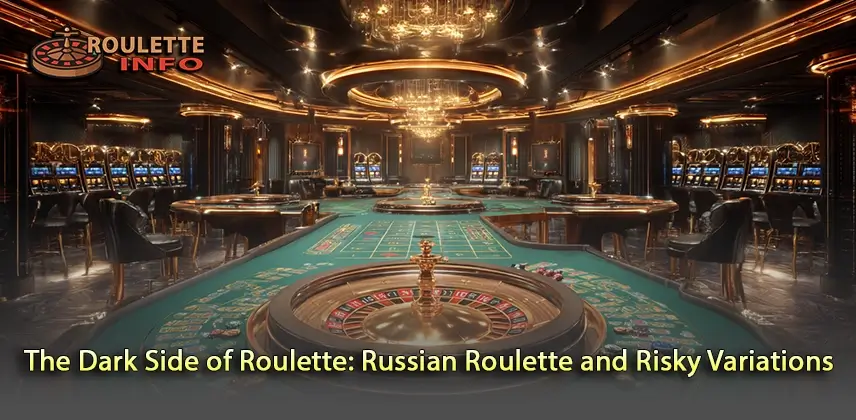
While most roulette games offer harmless entertainment, the term “roulette” sometimes evokes dangerous and illegal practices, notably Russian roulette. Understanding its profound risks and psychological roots is critical to differentiating between harmless gambling and life-threatening behavior.
Highlighting the ethical and legal concerns around risky variations emphasizes the importance of responsible gaming cultures and awareness.
Understanding the Dangers and Illegality of Russian Roulette
Russian roulette is an extremely dangerous game involving a revolver loaded with a single bullet spun randomly in the cylinder. Unlike casino roulette, this is a lethal game with no winner except the rare survivor.
It’s illegal and deeply harmful, often associated with suicidal intent or reckless bravado. Awareness of its dangers and the stark contrast with legitimate games underlines the importance of keeping gambling activities safe and regulated.
Exploring the Psychological Factors Behind Such Dangerous Games
Engagement with dangerous practices like Russian roulette often involves complex psychological factors including risk-seeking behavior, mental illness, or social pressures.
Understanding these factors can inform prevention efforts and support services to help individuals at risk. It reflects broader human misunderstandings about luck, fate, and control that also influence gambling behavior.
Promoting Awareness and Responsible Decision-Making
Promoting education about the risks and realities of games like Russian roulette is essential to protecting vulnerable individuals.
Responsible decision-making in gambling contexts involves knowing the limits, recognizing unhealthy patterns, and choosing safe, regulated games. The contrast with legitimate roulette games highlights the critical role of societal and regulatory frameworks.
Playing Roulette with Real Money: Online Roulette Echtgeld
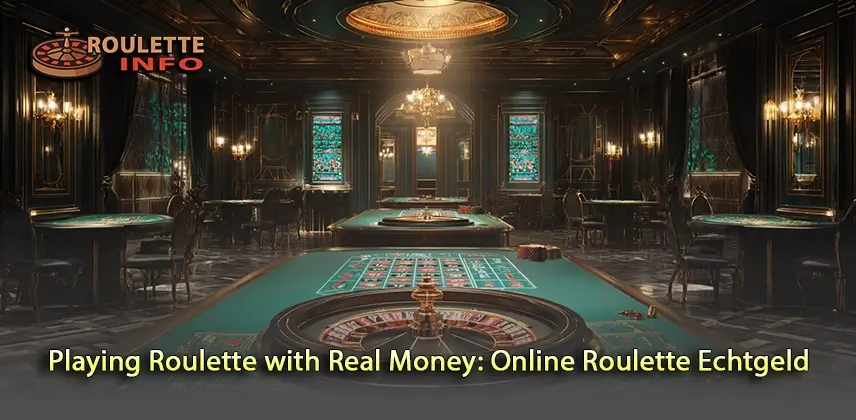
For many players, the thrill of roulette reaches its peak when playing online roulette echtgeld (real money). This adds stakes, excitement, and the possibility of meaningful wins but requires careful navigation to ensure safety and legal compliance.
Choosing licensed operators, understanding the local laws, and securing payment methods are paramount when risking real funds in online environments.
Finding Legal and Licensed Online Roulette Echtgeld Options
Not all online casinos offering real money roulette online are created equal. Prioritizing sites with valid licenses from respected authorities protects players from fraud and unfair games.
Researching reviews, verifying credentials, and checking for player protection policies help players find trustworthy venues that support real money play responsibly.
Ensuring Secure Transactions and Data Protection
Playing roulette for real money involves financial transactions, necessitating robust security protocols. Casinos employing SSL encryption, secure servers, and reliable payment gateways safeguard player data and funds.
Using trusted payment methods and being cautious about sharing sensitive information further enhances security during online roulette play.
Understanding the Local Laws Regarding Online Gambling
Legal frameworks for online gambling vary widely by country and even by region. Before engaging in online roulette echtgeld, players should familiarize themselves with their local regulations.
Playing on unauthorized sites can lead to legal consequences or loss of protections. Adhering to the law ensures a safer, more enjoyable gaming experience and supports industry integrity.
Conclusion
Roulette is a multi-faceted game that combines rich history, engaging mechanics, and cultural symbolism with modern technological innovations like online roulette, live roulette, and exciting variations such as lightning roulette and roulette royale. Understanding the fundamentals—from the wheel layout and house edge to popular betting strategies and risk management—equips players to appreciate the game both intellectually and recreationally. Navigating the online casino landscape requires informed choices about licensing, security, and responsible play, while awareness of roulette’s cultural footprints and darker analogs reminds us of the importance of making safe and mindful decisions. Whether exploring roulette demo modes to practice or diving into online roulette echtgeld for real stakes, players who combine knowledge, strategy, and discipline can enjoy this classic game while respecting its inherent risks and rewards.
